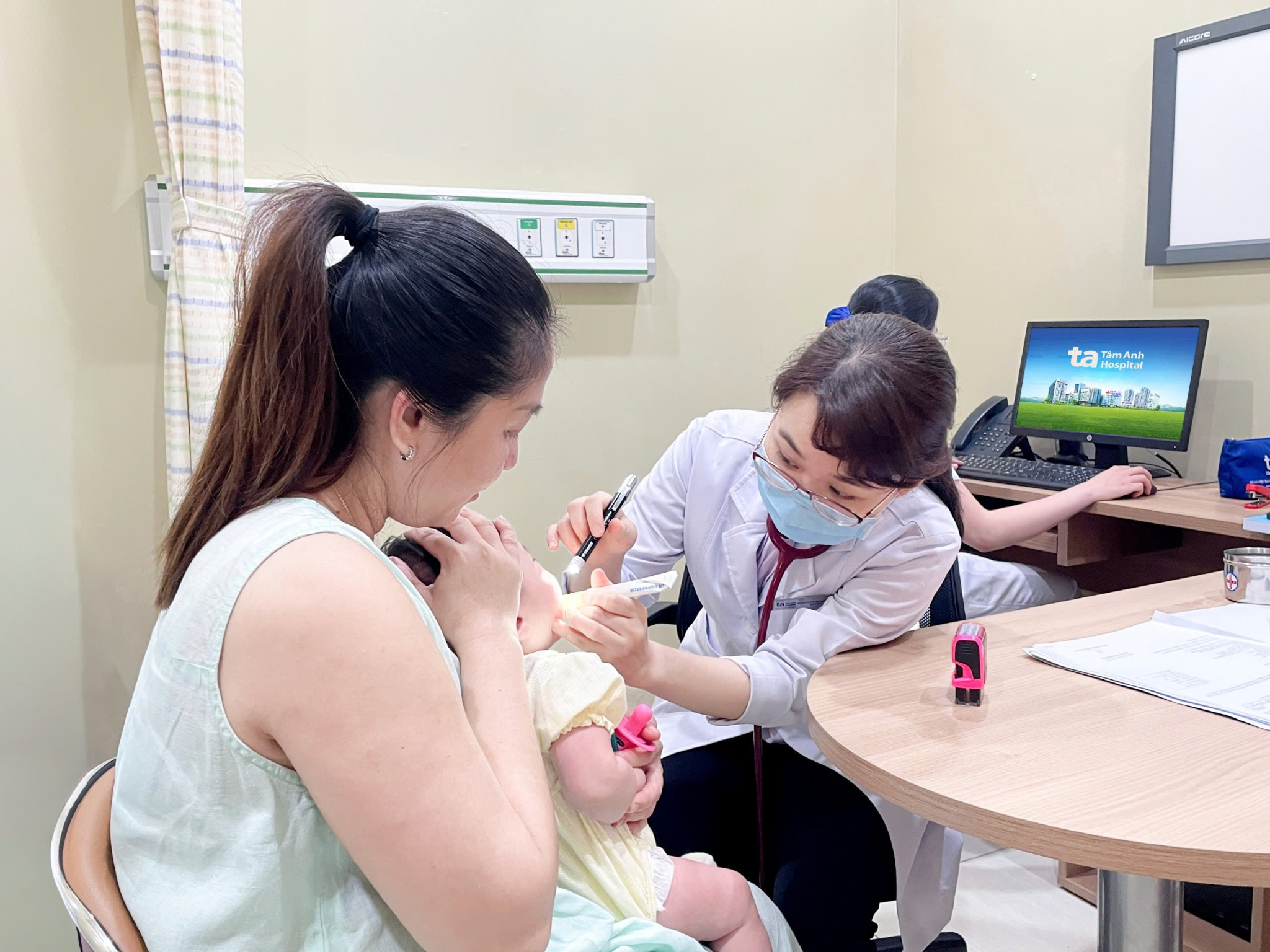Dr. Phan Thi Tuong Van, a pediatrician at Tam Anh General Clinic, District 7, recommends regular check-ups even for healthy children. Crucial milestones include a few days after birth and before two weeks of age. Children under 2 years old should have check-ups at 1, 2, 4, 6, 9, and 12 months, followed by annual check-ups thereafter.
Early detection of underlying medical conditions is crucial. Young children might experience delays in rolling over, crawling, walking, or talking, or they may have communication difficulties. Through examinations, doctors can assess developmental milestones to detect potential problems early and intervene with therapies (physical, speech, or behavioral) during the crucial developmental years.
In older children, doctors can identify early signs of ADHD, anxiety disorders, depression, or learning difficulties through conversations with parents and observations. Check-ups also screen for sensory issues (vision and hearing), and underlying conditions like congenital heart defects, high blood pressure, thyroid disorders, hernias, undescended testicles, scoliosis, and iron-deficiency anemia.
 |
Dr. Van examines a young patient. Photo illustration: Tam Anh General Clinic, District 7 |
Regular check-ups help ensure optimal growth and development by monitoring physical growth indicators like weight, height, and head circumference. They also assess behavioral and psychosocial development by observing how children interact, play, communicate, and their sleeping and eating habits.
Vaccinations are essential for protecting children from dangerous infectious diseases like measles, mumps, rubella, diphtheria, whooping cough, tetanus, polio, hepatitis B, Hib meningitis, pneumococcal disease, chickenpox, and influenza. Timely vaccinations provide protection when children's immune systems are still developing and the risk of exposure is high. During check-ups, doctors review vaccination records and advise parents on upcoming vaccinations.
Check-ups also provide opportunities for parental guidance. Doctors can advise on breastfeeding, the timing and method of introducing solid foods, appropriate food choices, and balanced nutrition. Parents learn to recognize warning signs of potential health issues, prevent accidents, and establish healthy lifestyle habits, including hygiene and child-rearing practices.
Dr. Van recommends choosing reputable healthcare providers that offer comprehensive examination packages tailored to children's different age groups.
Dinh Lam
| Readers can submit questions about children's health here for doctors to answer. |












